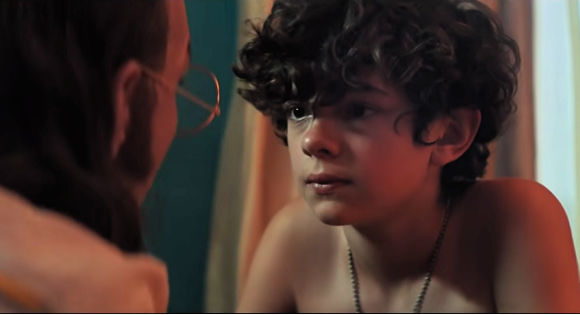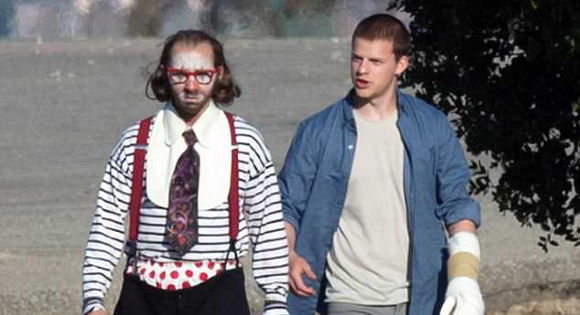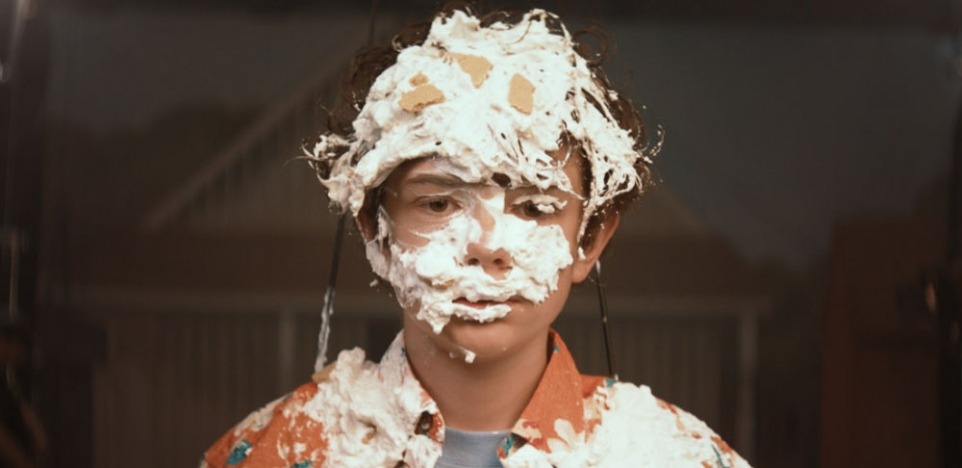Actor Shia LeBeouf has fascinated audiences for years, racking up bizarrely disparate onscreen credits and chronicles of offscreen behavior that have baffled those who grew up knowing him as a disarmingly mature child star on the Disney Channel’s series Even Stevens. Now Honey Boy, written by LeBeouf about his own childhood and directed with artful elegance by Alma Har’el, seeks to connect some of these dots. It shows how LeBeouf’s explosive relationship with his mercurial father cast a shadow over every event of his young life and led to his aggressive adult struggles. The film maintains a tricky balance that ends with no explicit moral takeaway, but the authenticity and fully felt performances on display make Honey Boy a curiously spiritual, if still intentionally unsatisfying, experience.

Film star Otis Lort (Lucas Hedges), a stand-in for LeBeouf, has hit rock bottom. He’s abusing substances and erupting in violent outbursts that frighten others almost as much as they frighten Otis himself. He enters an inpatient rehab facility to mine his brash behavior and seek healing with the help of several tenderly tough doctors. One of them, the patiently firm Dr. Moreno (Laura San Giacomo) believes Otis is suffering from PTSD.
As Otis explores the implications of this diagnosis, his memories flit back to his years as a child actor, where he’s played with the perfect amount of innocence and weariness by Noah Jupe. While this was a time of star-powered strength, it was also an overwhelming time that forced him to grow up quickly, both as a professional and as a son taking care of his unpredictable father James (LeBeouf himself).

James, a former rodeo clown and veteran, is a troubling creation, and while LeBeouf appears to be having a ton of actorly fun embodying such an off-kilter personality, it is impossible to ignore how intensely traumatic his behavior must be for young Otis, and therefore how intensely traumatic LeBeouf’s real-life father’s behavior must have been for LeBeouf himself. It’s a trippy experience, witnessing LeBeouf exhume the spirit of a man who has simultaneously created and damaged him. The film relies less on a conventional plot than it does on a cumulation of scenes in which James and young Otis fight, often physically, and then make up, often reluctantly. In this classically grim glimpse into an abusive relationship, LeBeouf gets to act up a storm, but it’s Jupe’s big-hearted performance that makes both the explosive and quieter scenes work.
Along the way, Otis gets moments of tenderness from several peripheral characters, most notably a quietly caring neighbor (FKA Twigs) who offers Otis the open arms and sensitivity that James just can’t bring himself to give. But all of these relationships are sabotaged by James through some emotional eruption, often violent, and as these frightening scenes continue to add injury upon injury, Honey Boy’s point (beyond the fact that hurt people hurt people and that the combination of toxic masculinity, unchecked jealousy, and substance abuse enable and expand that hurt) can often feel just out of reach.

After so many volatile fits and abandoned starts, the film’s coda suggests how much LeBeouf cares for his father and how much the creation and execution of Honey Boy has succeeded in providing the actor with a sort of bitterly spiritual healing. And this might be the main point after all. There may be no true way to permanently repair the wounds, but naming the pain, honestly showing the scars to one another, and continuously comparing stories of hurt might be the only authentic way that human beings actually have to aid one another in individual and collective journeys toward restoration. It’s not sweet or satisfying, but Honey Boy does seem like one appropriately tentative step forward in a lifelong process.
